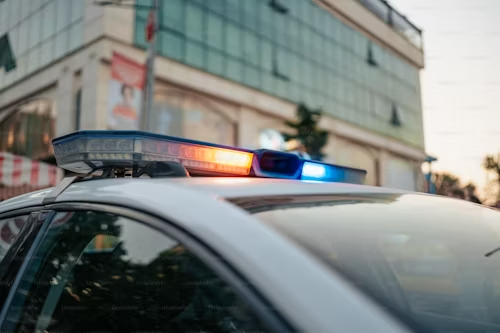NYPD Officer Suicide – The New York Police Department (NYPD) is in mourning after the tragic death of one of its officers, who took their own life earlier this week. This devastating news has reverberated across the department and the broader law enforcement community, underscoring the mental health challenges faced by officers who work in high-pressure environments to protect and serve. While the officer’s identity remains undisclosed pending family notification, sources confirm they were a beloved and respected member of the force, known for their dedication, professionalism, and compassion.
This loss is particularly shocking because the officer was admired not only for their commitment to duty but also for their role as a mentor, friend, and role model. Colleagues and community members alike have expressed their deep grief, recalling the officer’s ability to inspire and go above and beyond both on and off the job. The tragic incident occurred at the officer’s home, where emergency responders arrived but were unable to save the officer, who was pronounced dead at the scene. While investigations into the circumstances of the suicide continue, early reports suggest a combination of personal and job-related stressors may have contributed to the incident.
In response to the loss, NYPD Commissioner Edward A. Caban released an emotional statement, acknowledging the profound impact of the tragedy. “This is a heartbreaking moment for our department,” he said. “We have lost a member of our NYPD family, someone who dedicated their life to service and to protecting others. Our thoughts and prayers are with the officer’s loved ones, friends, and colleagues. We are committed to supporting everyone impacted by this loss and to ensuring we continue to take real steps to address mental health within our ranks.”
The death of this officer underscores the critical importance of addressing mental health within the police force. The NYPD has long recognized the mental health challenges its officers face, including the psychological toll of traumatic incidents, long and grueling shifts, and the constant pressure of urban policing. In response, the department has implemented a range of support services, such as confidential counseling and peer support programs. However, this heartbreaking loss has illuminated the fact that more needs to be done to ensure the well-being of officers.
Suicide among law enforcement officers has become a growing concern in the U.S. Recent statistics from Blue H.E.L.P., an organization that tracks officer suicides and advocates for mental health awareness, reveal that more officers die by suicide each year than are killed in the line of duty. These figures highlight an often-overlooked crisis—one where officers’ emotional and psychological wounds remain hidden behind their badges.
The pressures officers face, including responding to violent crime, accidents, and domestic disputes, can take a toll over time. The stigma surrounding mental health in law enforcement, coupled with a culture that prioritizes strength and resilience, often prevents officers from seeking the help they need. Many officers feel they must endure these struggles in silence, fearing that seeking assistance might be seen as a sign of weakness.
In light of this tragedy, advocates for law enforcement reform and mental health professionals are calling for systemic changes within police departments. These include increasing access to mental health resources, regular wellness checks, and fostering a culture that prioritizes psychological safety. Retired NYPD Sergeant John Rivera, a mental health advocate, emphasized the importance of breaking the silence surrounding mental health in policing, urging that it be treated with the same seriousness as physical injuries.
“We need to treat mental health in law enforcement the same way we treat physical injuries,” Rivera stated. “Just because you can’t see the wound doesn’t mean it isn’t there. Officers need to know it’s okay to ask for help—and more importantly, they need to trust that help will be there without judgment.”
As the NYPD and the city of New York grieve, tributes to the fallen officer continue to pour in from colleagues, community members, and city officials. Plans are underway for a memorial service to honor the officer’s life and legacy. This tragedy serves as a stark reminder of the human side of policing and the urgent need to support those who risk their lives to protect others.
For those struggling with similar challenges, help is available. The National Suicide Prevention Lifeline can be reached by dialing 988, reminding us all that no one is ever truly alone.
